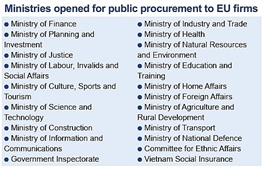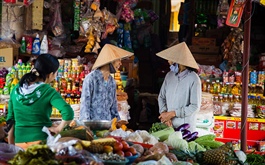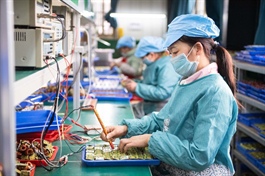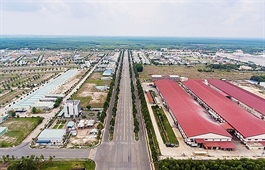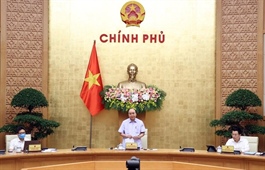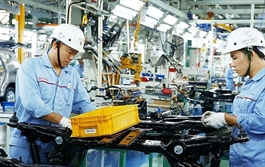ASEAN + 5 expect to sign RCEP Agreement in November
ASEAN + 5 expect to sign RCEP Agreement in November
The Regional Comprehensive Economic Partnership (RCEP), a proposed wide-area economic partnership under negotiation among ten ASEAN member states and five countries including Japan, China, the Republic of Korea, Australia, and New Zealand, is expected to be signed in November this year.

The information was released at the RCEP Ministerial Meeting hosted by Viet Nam Minister of Industry and Trade Tran Tuan Anh via a video conference held on Thursday.
Economic ministers from 15 countries participating in the RCEP negotiations attended the online conference, except India, which withdrew its participation in the RCEP Agreement in July this year.
At the meeting, ministers agreed that the signing will be a basis for strengthening the business community’s confidence and firming the sustainable structure of the regional economy.
The ministers discussed solutions to promote negotiations on RCEP, towards the possibility of signing the agreement in November under the direction of RCEP member countries’ leaders.
Speaking at the opening of the conference, Anh highly appreciated the efforts made by negotiators since the beginning of the year. Online meetings and discussions of the parties involved in RCEP negotiations were still conducted on schedule, despite the prolonged impact of the COVID-19 pandemic.
The ministers focused discussions on the negative impacts of COVID-19, which has brought many challenges to trade and investment flows in the region, including countries participating in the RCEP negotiations.
It is noteworthy that RCEP participants still ensure the market opening, especially for essential goods and services, as well as strengthening cooperation to overcome the outbreak’s impacts.
The ministers also noted the particular importance of the RCEP Agreement in the context of economic uncertainty resulting from the outbreak’s impact, playing a key role in economic recovery after the COVID-19 pandemic and contributing to the stable growth of the world and regional economies.
The ministers also reaffirmed the opening of negotiations with India, not only because India was a participant from the beginning when the RCEP negotiations started in 2012, but also the potential that India offers for regional prosperity.
RCEP, with a market of 3.5 billion consumers and a total GDP of US$49 trillion that accounts for nearly 40 per cent of global GDP, forms the largest free-trade bloc the world has ever seen. Member countries are to join the open market for goods and services, investment opportunities, facilitated trade and simplified customs procedures.
Many Vietnamese businesses are looking forward to RCEP because the deal will create a huge market, including many consumers who do not require high-quality products. This will create wider opportunities for Vietnamese enterprises to export goods such as mobile phones, electronic products, textiles and garments and footwear.








